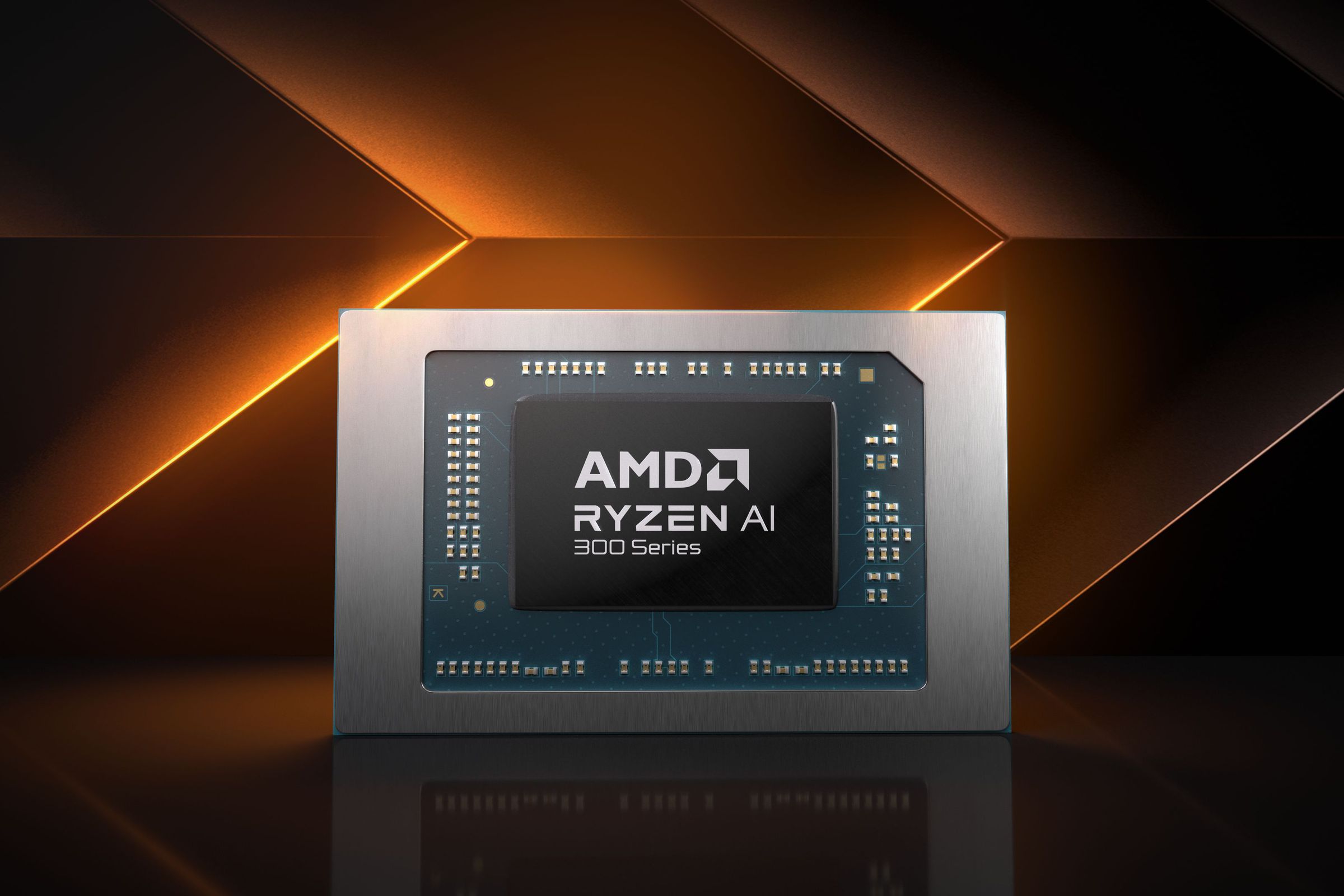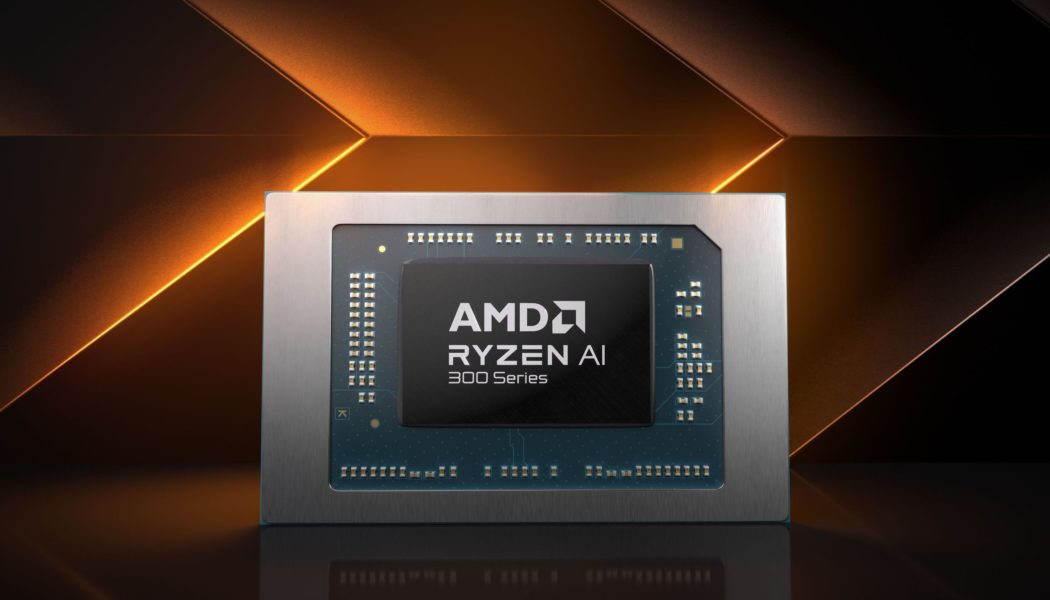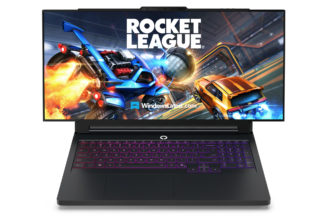Starting with the Ryzen AI 9 HX 370 and Ryzen AI 9 365.
Share this story

AMD announced at Computex 2024 its next generation of Ryzen laptop processors for generative AI workloads: the Ryzen AI 300 Series. It’s a re-brand of its top-tier Ryzen 9 chips. The new naming convention still includes the HX suffix AMD introduced in 2022, but it doesn’t indicate how many watts of power the chip draws. Instead, HX will simply refer to “top of stack” or the best and fastest Ryzen AI 300 chip.
The new Ryzen AI chips are built on AMD’s latest architectures for neural, integrated graphics, and general processing: XDNA2 for the NPU, RDNA 3.5 for the iGPU, which now has up to 16 compute units, and Zen 5 for the CPU. The first two processors in this series are the Ryzen AI 9 HX 370 and Ryzen AI 9 365. Both have 50 TOPS NPU, but the HX variant is the higher-end of the two.
The Ryzen AI 9 HX 370 is a 12-core/24-thread chip with a 5.1GHz max clock speed, 36MB cache, and Radeon 890M graphics. The Ryzen AI 9 365 is a 10-core/12-thread chip with a 5.0GHz max clock speed, 34 MB cache, and Radeon 880M graphics.
The Ryzen AI 9 300-series also appears to have the most TOPS compared to other NPU-configured chips already on or soon to be on the market. Qualcomm’s Snapdragon X series has 45 TOPS, Apple’s M4 has 38, and AMD’s last-gen Ryzen 8040 series chips had just 16. Intel’s Meteor Lake Ultra 7 165H has approximately 10 TOPS (but the upcoming Lunar Lake is supposedly going to even the playing field).
AMD claims its XDNA2 NPU has five times more compute capacity and twice the power efficiency compared to last-gen’s due it its unique FP16 “block” or NPU architecture that can process both 8-bit performance (INT8) and 16-bit accuracy (FP16) generative AI workloads without quantization. Quantization is a common method for increasing the power efficiency of AI models (something Qualcomm uses in its smartphone chips), or converting input values from a large dataset to output values in a smaller dataset. Unfortunately, it can also tank the AI models’ accuracy. But AMD’s new chips can supposedly run both types of mathematical equations without any conversion, so AI workloads will be processed both quickly and accurately.
Starting July 2024, Ryzen AI 300 is coming to some of the same Copilot Plus PCs (laptops) announced at Microsoft’s recent Surface event: the Asus Vivobook S 15 and HP OmniBook. Other laptops AI laptops include MSI’s Stealth A16, Summit A16, Prestige A16, and Creator A16; Asus’ Zenbook S 16, Vivobook S 14 and 16, and ProArt P16/X13, along with the Rog Zephyrus G16 and Tuf A14/A16 gaming laptops; and more ThinkBooks, ThinkPads, and Yogas from Lenovo.









